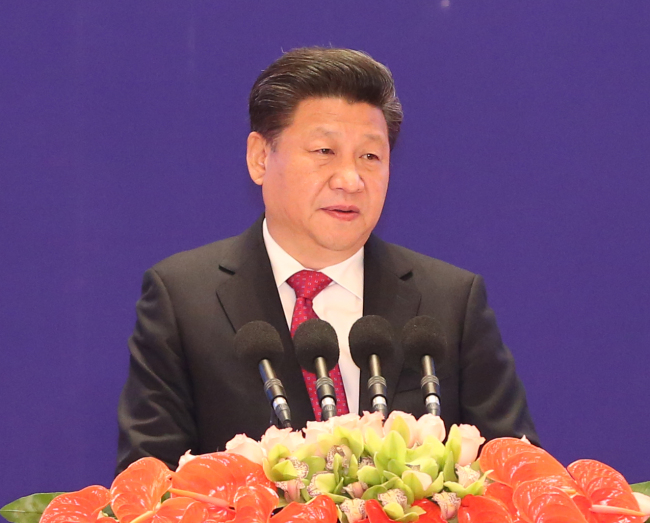Following Pyongyang’s nuclear test on Jan. 6 and long-range rocket test a month later, attention is being drawn to how Beijing will manage relations with its unruly ally and whether it will support harsher international sanctions against Pyongyang.
Some analysts said that although it was galling for China to see its communist neighbor repeatedly engage in provocations, it will not shift its erstwhile approach to North Korea and may continue to call for a resolution through dialogue.
After talks with U.S. Secretary of State John Kerry late last month, Chinese Foreign Minister Wang Yi said China “will not be swayed by specific events or the temporary mood of the moment” -- an indication that it will keep its policy stance vis-a-vis North Korea.
“Sino-North Korea relations have already experienced many ups and downs, and the latest provocations may not seriously impact the relations,” said Yang Gab-yong, the head researcher of the Institute of China Studies at Sungkyunkwan University.
“Historically, there have been many conflicts between the two countries, and the nuclear test and rocket launch will not dictate their relations. It is wrong to expect the two neighbors to be on the same wavelength all the time.”
Some observers said Beijing can make some readjustments in its approach towards Pyongyang at a “tactical” level -- albeit not fundamentally -- in due consideration of its neighbor’s continued defiance of calls to stop provocative acts.

Xi Jinping(Yonhap)
The rocket launch on Sunday pressed ahead although Beijing sent its top nuclear envoy Wu Dawei to the North on Feb. 2 to persuade Pyongyang to refrain from launching another provocation. Some called the launch a “slap in China’s face.”
Beijing may become increasingly wary of Pyongyang’s wayward behavior that has escalated military tensions in the region in a direction that will undermine its security interests, observers noted.
In particular, the emerging Cold War-like tensions -- triggered by Pyongyang’s provocations and the moves by Seoul, Washington and Tokyo to strengthen security cooperation -- could be something China wants to avoid, amid efforts to maintain its economic and political ascent.
“At the moment, China does not want to take any steps to enhance ties with North Korea, and it may think that the looming atmosphere reminiscent of the Cold War (in the wake of Pyongyang’s provocations) would not be helpful for its national interests,” said Kim Heung-kyu, political scientist at Ajou University.
“It would be a very painful case for China should China be dragged into a Cold War-like situation because of North Korea, when it is seeking and establishing an identity as a great power with international responsibilities.”
Kim added that in line with its international responsibility as a great power, China might join international sanctions against the North, but it could continue to explore various strategic options to deal with its recalcitrant ally.
Should the Sino-U.S. tensions escalate with the U.S. seeking to strengthen missile defense on the Korean Peninsula and in Northeast Asia, China could use a “North Korea card” to turn geopolitical situations in its favor, Kim pointed out.

Kim Jong-un (Yonhap)
Hours after Pyongyang launched what it claimed to be a satellite, Seoul and Washington announced that they will begin official talks over the feasibility of deploying the U.S.’ advanced missile defense asset -- Terminal High-Altitude Area Defense system -- which Beijing and Moscow have strenuously opposed.
Above all, the kind of military and diplomatic steps Seoul will take to deal with the evolving North Korean nuclear and missile threats will be a critical factor. Analysts cautioned against any moves that will aggravate tensions between the bloc of South Korea, the U.S. and Japan and the group of North Korea, China and Russia.
By Song Sang-ho (
sshluck@heraldcorp.com)






![[Weekender] How DDP emerged as an icon of Seoul](http://res.heraldm.com/phpwas/restmb_idxmake.php?idx=645&simg=/content/image/2024/04/25/20240425050915_0.jpg&u=)
